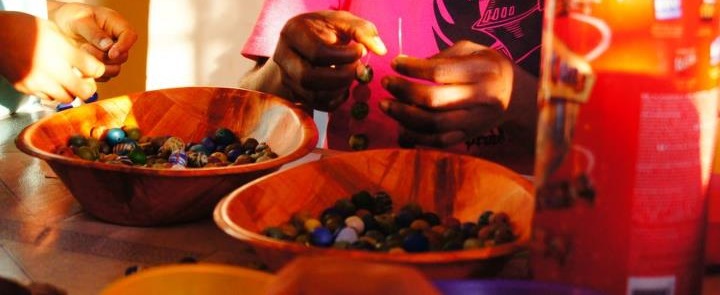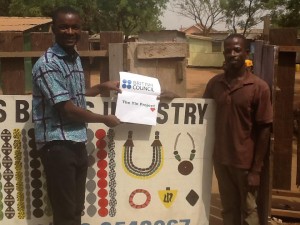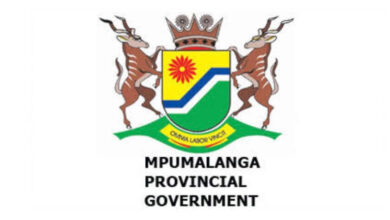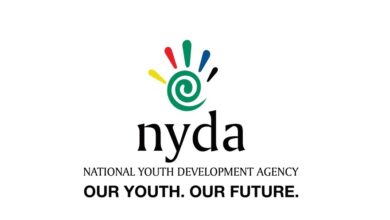Julia Agudogo Interview
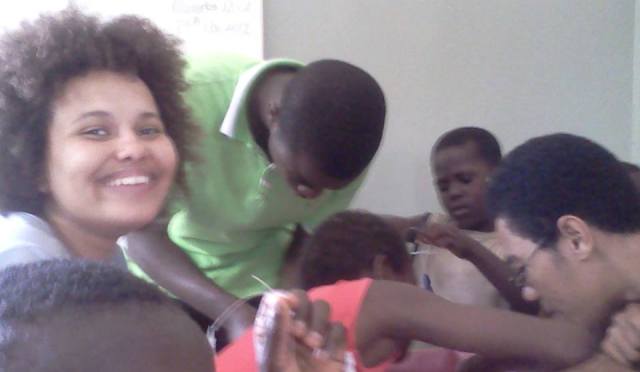
I am a devout optimist and a firm believer in the fundamental decency and potential of every human being.
Where are you from and how was your upbringing?
I was born in Dunajska Streda, Slovakia in Central Europe. However, I lived most of my life in Ghana, West Africa. I grew up in Accra where I lived 12 years of my life in my parents’ clinic. Growing up in a clinic was incredibly stressful, as you can probably imagine, however I learnt great valuable life lessons through living in a place constantly filled with sick people. For example, through my daily interactions with patients, I became aware of the suffering caused by the lack of effective preventive measures for diseases, such as malaria, in my immediate community. My time growing up in the clinic ignited in me a passion for taking away the pain of others whether the pain is caused by disease or other menaces to the welfare of society.
The greatest gift I have carried from my childhood is faith. I have been a Christian my whole life; in many ways my faith has been my infinite source of inspiration and meaning. I believe that God is love; loving others is by far my greatest guiding philosophy. Living a life of love gives me joy and hope that fills me with optimism. It is optimism that allows me to dream.
You have a project called The Yin project, what does it do?
The Yin Project is in the business of self-empowerment. It is a non-profit, based in Ghana, dedicated to the empowerment of all people, particularly illegal child labourers, by equipping them with skills necessary for them to improve the quality of their own lives. It’s self-sustainable through the sale of gorgeous recycled glass bracelets. All the profit is then used to fund their apprenticeship (in a chosen trade) and basic Mathematics and English lessons for illegal child labourers from Ghana.
How long has the project been running for?
The Yin Project has been running since the 17th of November, 2011.
How can people get involved in the project?
The Yin project is volunteer-driven; hence anyone committed to self-empowerment through hard work is welcome to join us!
We would love to have more people volunteering with us, providing feedback and ideas for improvement, and supporting us by liking and sharing our facebook page to help publicise the project and broaden our market.
Please take a moment to support us; it would be highly appreciated J
http://www.facebook.com/TheYinProject
Was starting this project your dream?
The story of the Yin Project began when I visited an illegal gold-mine in Bolgatanga in the Upper-East Region of Ghana in March 2011. The pain, suffering and hopelessness of the illegal child-miners I encountered was scary and deeply insightful and even when I got back to Accra, these memories, especially those of a boy called Yin, haunted me. I felt powerless and spited the government for allowing these atrocities to happen in our country. I knew that I had to act, but to do so I needed to challenge my own insecurities and I had to challenge my own artificially created parameters. I knew that to initiate real impact I could not do it alone. I needed to draw others to the cause, collaborate and to push myself to take charge and fight for what I care about. I care about giving the opportunities to every member of society to empower themselves. Later that year, I started The Yin Project, a non-profit to support the education of illegal child miners in Bolgatanga, Northern Ghana. The first child-miner we are supporting is Yin. The project is financially sustainable through recycling glass bottles into authentically-Ghanaian bracelets, consists of a team of 21 volunteers and is proudly supported by the British Council GlobalChangemakers Programme. The project combines recycling, literacy and leadership education to prompt self-empowerment. Starting this project has put me on a path that I believe will help to achieve my dream of equipping people with skills that will enable them to strive for theirs.
What were some of the challenges you faced as a young person starting your own project?
One of my greatest challenges was stepping out of my comfort zone and convincing myself that I had the potential to develop a successful project. Other challenges were accumulating funds, recruiting a committed team, managing time effectively, coordinating the team while studying in South Africa and convincing people from diverse educational and cultural backgrounds to work together and give their time- we had very busy professional and student volunteers, sometimes it was incredibly difficult to communicate and to keep everyone inspired and willing to work hard.
How is the community benefiting from the project?
The Yin Project has been able to give the first child miner we sponsor a platform to gain control over his own future. We have provided him with a safe and educative environment to grow in. We have placed Yin in a welding apprenticeship and have enrolled him into our basic Math and English program. This is by far the greatest accomplishment we have had as we have taken a young beautiful boy from a lifestyle that involved him performing life-threatening activities even for adults such as climbing down shafts with home-made dynamite wearing no protective gear. The effects of working under such conditions went far beyond overexertion, noise, poor ventilation and poor lighting. Yin was particularly vulnerable to severe respiratory diseases (such as silicosis), hearing and vision problems, neurological problems, tuberculosis, mercury poisoning and serious injuries or being crushed to death during pit-collapses. Now he is in a better place.
The Yin Project has raised awareness about the plight of illegal child-miners in Ghana and is propelling the mindset that we can take action with or without the governments help. Weshowed all the volunteers involved the power of working together to break down vices such as child labour by giving opportunity to be educated and move on to a better future. We held presentations about choosing teamwork and facing problems head on rather than running away in order not to feel guilty. We raised awareness about illegal child-mining and ‘active citizenship’ in Ghana to through presentations and our facebook page reaching over 421 people.
What have you learned from being a Global change maker?
Being a GlobalChangemaker has being an amazing adventure. I learnt numerous skills such as networking, fund raising, the immense importance of monitoring and evaluating progress of my project regularly and the power making friends with similarly fierce drives to get up an create sustainable change. My greatest lesson though has been to actively seek advice from more experienced and wiser people when making high-risk decisions.
What are the challenges facing African youth and how can they overcome them?
African youth come from very diverse cultural and socio-economic backgrounds which makes it very difficult to pinpoint common challenges and ‘one size fits all’ solutions. However, there do exist a few common threads such as mental slavery and a lack of entrepreneurial skill sets. African youth must empower themselves in order to overcome these challenges to be able to be competitive in the global community. In order to do this, they must learn to be proactive about their own future by seeking advice from more experienced professionals, mentorships through leadership programs, creating specific, time bound, realistic and measurable goals for their lives and most importantly to inquire and reflect upon their own experience to find their unique purpose in life.
What would you say is needed to help young people start their own businesses?
To start a business, I have learnt that it is essential to have a fierce passion, commitment, an executive summary, a dedicated team with an aligned value system and the ability to learn from failure and seek advice from experienced people.
Are you reading anything at the moment?
I am reading ‘The Stranger’, by Albert Camus. The Stranger explores the theory of an absurd universe; where there is no God and life has no meaning. I am a devout Christian hence, I completely disagree with the philosophy of Albert Camus. However, I believe in the immense importance of inquiring into divergent views as a tool to understand and be able to justify and defend one’s own belief system. It is my firm belief in inquiry that attracts me to explore authors with beliefs so contrary to my own.
What was the best career advice you ever received?
‘We cannot start over, but we can begin now, and make a new ending’-Zig Ziglar
I came across this quote one lazy weekend while searching for inspiration online. It reminds me that even though there are some days that we must concede the mistakes we have made, we must always remember that here is hope if we put away our pride, humbly reflect on where we went wrong and gather up the courage to face our failures. We can only learn from failure if we face it head on, only then can we change the final outcome of our choices.
Who is an African leader that you admire?
I admire an incredible woman, Mama Laadi, who exemplifies servant leadership. Mama Laadi runs a foster home for 35 orphans in Bolgatanga, in Northern Ghana. She barely makes ends meet yet she cares for 35 children, none of whom are her own, out of love. I think the most wonderful human beings are those whom give and love others even though they have so little. Mama Laadi is one of those.
What is your African dream?
My African dream is an Africa where self-empowerment is readily accessible for all who seek it, through education and promoting entrepreneurship to create sustainable and concrete value.
What advice do you have for young people who want to start their own project?
Constantly seek feedback and advice about the strategy of the project from experienced mentors. Sometimes, your own view or the view of your team might not be objective, possibly due to emotional attachments, hence it will be wise to get a trusted outside opinion. Also, please save some extra cash in case of emergencies!

